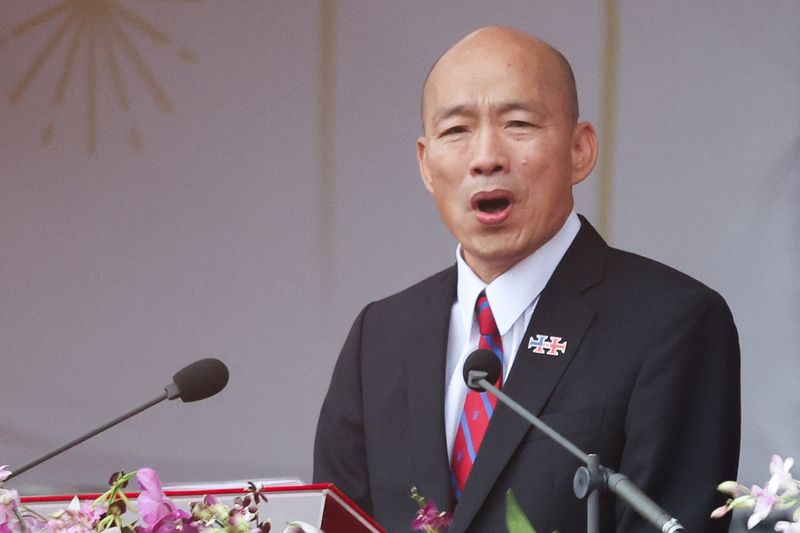Investing.com’s stocks of the week
TAIPEI (Reuters) - A delegation of Taiwanese lawmakers led by parliament's speaker will attend Donald Trump's inauguration as U.S. president, the presidential office said on Wednesday, adding the government will continue boosting ties with the new administration.
Taiwan, which China views as its own territory, enjoyed strong support from the first Trump administration, including regularising arms sales which have continued under President Joe Biden, but Trump unnerved Taiwan on the campaign trail by calling for it to have to pay to be defended.
Taiwan's presidential office said that parliament speaker Han Kuo-yu, a senior member of the opposition Kuomintang party and who unsuccessfully ran for president in 2020, would lead the group to the inauguration, accompanied by a cross-party delegation of seven other lawmakers.
Leaving on Saturday for the Monday ceremony, the group will meet U.S. dignitaries, think-tanks and academics, Taiwan's presidential office said, without giving details.
"Taiwan-U.S. relations have a long history, and the two sides have made significant progress in recent years," it said in a statement.
"The government especially congratulates President Trump on his inauguration, and will continue to strengthen Taiwan-U.S. relations in the future on the basis of the existing good mutual trust and interaction."
The Kuomintang and the small Taiwan People's Party together hold the majority of seats in parliament. The Kuomintang traditionally supports close ties and dialogue with China but denies being pro-Beijing.
China has yet to announce who it will be sending to the inauguration.
The United States, like most countries, has no formal ties with Taiwan but is bound by law to provide the island with the means to defend itself.
Taiwan's democratically elected government rejects Beijing's sovereignty claims, saying only the island's people can decide their future.
China refuses to speak to Taiwan President Lai Ching-te, saying he is a "separatist".
